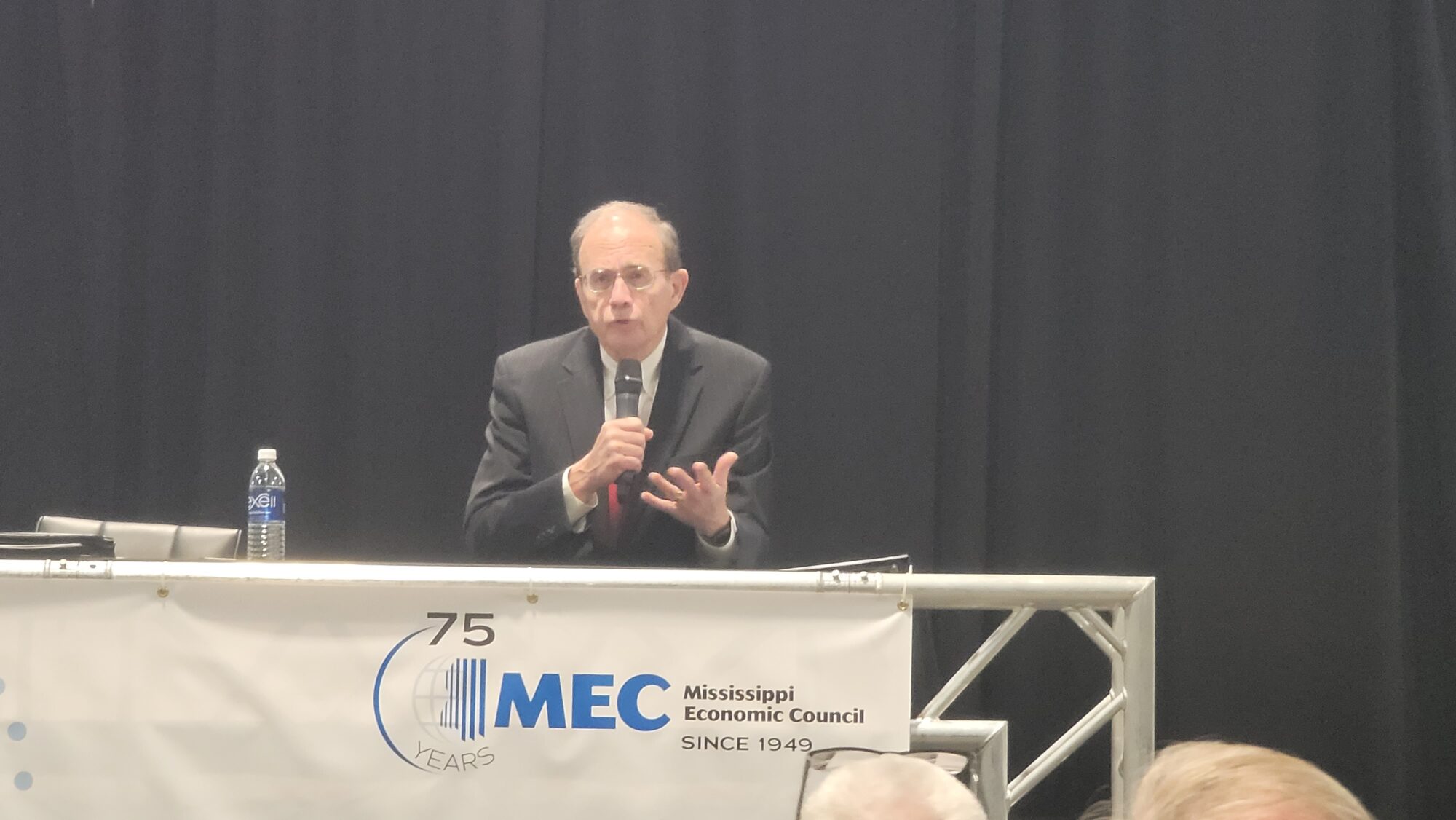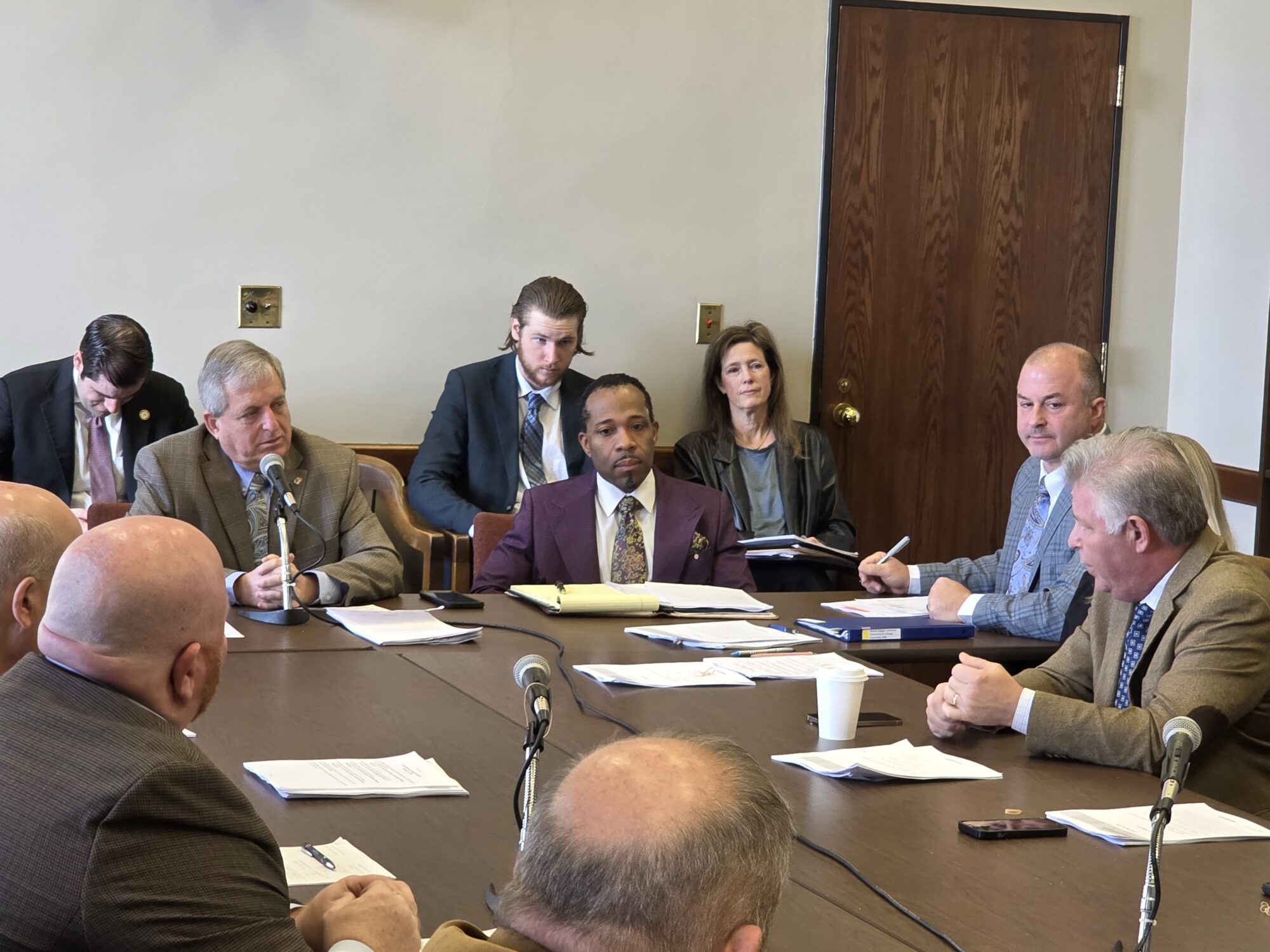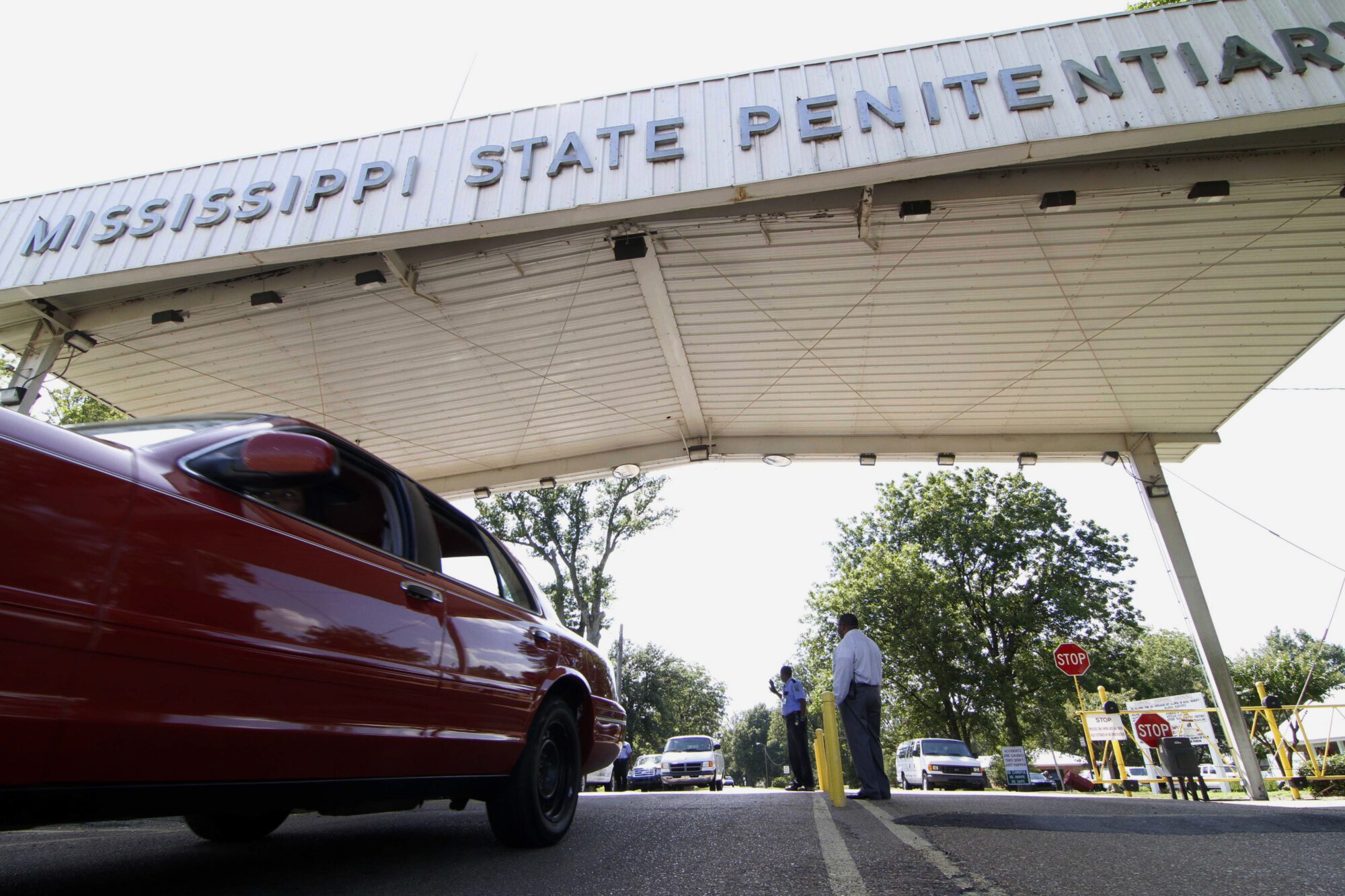
Mississippi's Lt. Gov. Delbert Hosmann speaks during Thursday's MEC Capital Day, held at the Mississippi Trade Mart. (Photo by Jeremy Pittari/Magnolia Tribune)
Lt. Governor Hosemann advocates for the Legislature to establish tuition free community college to help combat the state’s low labor participation rate.
Mississippi’s business community heard about the importance of increasing the number of educated workers in an effort to build a strong and willing workforce in the Magnolia State during Mississippi Economic Council’s annual Capital Day, held at the Mississippi Trade Mart on Thursday.
While the second leg of Capital Day was planned to take place at the State Capitol, a bomb threat that morning closed the building for a short time, prompting Lt. Gov. Delbert Hosemann to speak to the state’s business leaders at the Trade Mart.
“It really wasn’t a choice to come here or stay with the bomb,” Hosemann joked.
On a more serious note, the second-term Lt. Governor went on to inform attendees that the Legislature has invested in infrastructure, $100 million of which is for roads and bridges with another $2.3 billion in overall infrastructure investments.
“We’re actually paying for infrastructure… two years in advance, that’s never been done,” Hosemann said.
Another round of teacher pay raises is on Hosemann’s agenda. The last couple of years teacher pay raises averaged $6,000, and there is a plan to increase them again this year, he predicted.
There is also a need to address the state’s current workforce participation rate, which is below average when compared to the rest of the nation. Hosemann said the state has the worst labor participation rate in the country, and as a result he wants the Legislature to establish free community college, meaning the state would offer tuition free education to the state’s youth from kindergarten through community college.
“Now if we’re going to change the workforce participation rate, we got to have competent people, and that competency will come from education,” Hosemann said.
He said it’s important for the businesses and industries in the state to offer job shadowing and internships working with Mississippi’s career coaches.
“What that does is give you first choice on that employee,” Hosemann stated.
Even though the unemployment rate is about 3 percent, meaning 97 percent of the population that wants to work has a job, there is a larger portion of the population that is simply not interested in finding employment.
“So, basically Mississippi is fully employed, that’s where we are. The only way to add to the pool is to get a more educated workforce,” Hosemann continued.
The current workforce participation rate, or the rate of the total population that is employed, is 53.9 percent in Mississippi. The national average is 61 percent, Hosemann said.
“That’s a huge pool of people that could be working for you, making your better, making your jobs better, making your company better, making their lives better, making our state better,” Hosemann elaborated.
Settling debt is another priority for the state’s lawmakers, which is already underway, the Lt. Governor told attendees.
“This year we will pay off $900 million of state debt – 24 percent of the state’s debt has been erased in the last three years and we do not intend to borrow any money this year,” Hosemann added.
He said reducing debt shows the state is not only planning for the future for the current workforce, but also the future of the state’s children.
Career coaches Lorene Haymer with the Holmes County Central High School, Collyn Leggett with West Jones High School, and Jim Sutherland with Columbus High School also spoke during the MEC event on how they help students find a career path they will enjoy that does not involve going to college and how businesses and industries can get involved.
A career coach’s task is to learn each student’s strengths and interests to help set them on the path to a career where they will excel. Such work can include giving the student hands-on experience through an internship or job shadowing, as Hosemann encouraged.
Sutherland said his campus works with local businesses in the Columbus area to provide students with access through a workforce program. There, students spend about 100 hours working in a field they may be interested in during the school year. That experience helps the student determine if it’s a path they want to pursue while connecting the dots so the student sees the bigger picture of what that job path will entail.
If a particular company does not offer internships or job shadowing, a professional in that particular field can come to the school and speak to students to give insight into the job’s day-to-day activities.
Haymer said career coaches also provide mock interviews, where students learn about the importance of dressing properly and gain experience in the intricacies of an interview.
Parents and guardians play a large part in their child’s future. Leggett suggests they encourage students to meet with school counselors and career coaches to assess the opportunities.
“Parents are important in the decision making process,” Leggett said.











